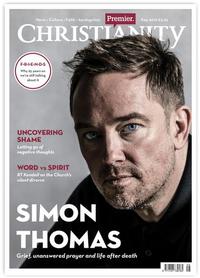
Jesus declared “I am the way, the truth and the light.” Yet the voice of Christian leaders and organisations speaking out against fake news and disinformation is hardly to be heard.
Experienced Christian communicators have told me why they think the Church is largely silent. It’s because, they said, we have a far from unblemished record on truth ourselves. Just look at the deceptions around numerous child abuse cases, they argue.
But I think the Church has much to bring to the debate.
In recent weeks, I have listened to the views of women and men with wide experience in fields including media, communications, advertising, publishing, film-making, the charity sector and the Church. Each was concerned about the impact of fake news and disinformation.
Some pointed out that ‘fake news’ had been around for centuries. The first Christians had to contend with stories put about that they were cannibals, eating flesh and drinking blood.
Many commentators have pointed to President Trump’s 2016 election as a victory for ‘post-truth,’ where sentiment outweighs facts. Yet, 16 years earlier, Christian academic Os Guinness published Time for Truth surveying the US political landscape under Bill Clinton and lamenting its retreat from truth back then.
In the UK, both sides of the EU referendum have been accused of using disinformation to bolster their positions. This summer a group of MPs found there was so much disinformation on line that it was crowding out real news.
Earlier this month, the BBC published research showing that fake news was having a major impact not just in the West, but in countries around the world, including India, Kenya and Nigeria.
In an age when truth has become massively eroded, and it’s hard to know what to believe, Christians have a responsibility to speak out for truth. Here are four ways we can do this:
1. Have confidence in the good news
The Christian message of love, sacrifice, redemption and salvation has transformed millions of lives down through centuries. Jesus Christ remains a pivotal figure for all time.
That’s not to say that it’s our place to expect others to immediately believe the faith we hold, and to take this as their truth. I was pleased to hear speakers at this autumn’s Premier Digital Conference, for example, encouraging Christians to engage sensitively with others when sharing their faith, online or in person.
Following in Christ’s footsteps, we are called to put humility at the core of how we present our faith. Christ listened to people who came to him, spoke with them and entered into debate, often at a deep level. He washed his disciples’ feet and welcomed the company of people that polite society rejected.
2. Reach out to all kinds of people
In a world where truth has become devalued, it’s men, women and organisations who serve and affirm all kinds of people, who will gain a hearing.
Earlier this month, the Church of England published research showing that more than 33,000 social action projects - from food banks to debt counselling - are run or supported by parish churches. Across the denominations, ten of thousands more projects are being run.
At the root of these projects is an army of volunteers, Christians working alongside people from a range of backgrounds, being authentic, showing their own frailty and seeking to help others, as an expression of the truth of their faith.
3. Think local
While power and influence is moving to global companies and remote organisations, the Church remains committed to the local, seeking to meet the needs of local people and to engage in mission and ministry at the grassroots. It’s on our own doorsteps that trust, and truth, can be best encouraged.
That’s why the demise of an effective, trusted local media is worrying, and why initiatives to support quality journalism that champions the grassroots and holds local politicians to account are vital to the cause of truth.
4. Serve
Churches have a long track record of service. The village church where I minister has been part of the local community for more than 900 years.
Research into the faith groups’ response to the Grenfell Tower tragedy in June 2017 showed that their deep roots, established over long periods enabled local groups to be trusted and to serve the survivors and the bereaved.
It's as we serve our communities and neighbourhoods that trust will be formed. And once that is established, the door will be open to truth.
Rev Peter Crumpler is a Church of England minister, serving in Hertfordshire, and a former communications director for the Church of England’s Archbishops’ Council
Enjoyed that? Get more articles covering news, culture, faith and apologetics in every print issue of Premier Christianity magazine. Subscribe now for HALF PRICE (limited offer)





























